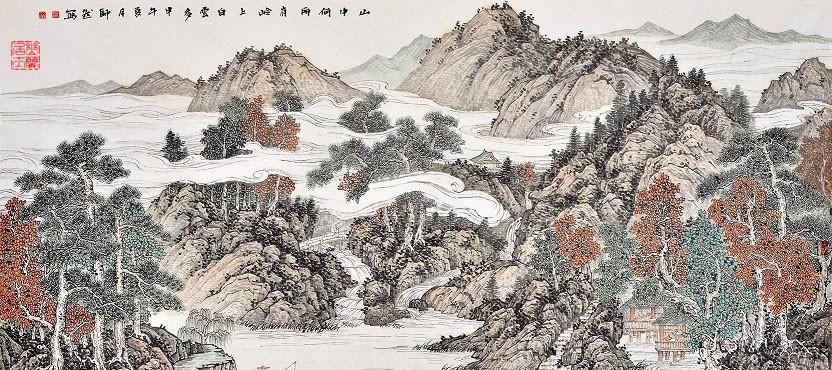Video loading...
Becoming an official and honoring the ancestors of the Guangzong Dynasty has always been the dream and goal of the readers, but Tao Hongjing during the Southern and Northern Dynasties was different. Tao Hongjing has been brilliant since childhood, reading the "Biography of the Immortals" at the age of 10, composing "Searching for the Mountain" at the age of 15, and being worshipped by the General of the Zuo Wei Temple in his 20s. Tao Hongjing, who was at the right time, resigned his official post at the age of 36 and retired to Maoshan Mountain, practicing Dan Cultivation and studying medicine. Even if an old friend who was an emperor invited him out of the mountain many times, he would never agree.

He asked Yamanaka what all the poems were answering
Nanbokucho: Tokokei
There are many white clouds in the mountains.
It can only be pleasing to oneself, and it is not enough to hold the gift.
【Note】
Edict: Edict, an edict issued by an ancient emperor.
Yiyue: Pleasant, joyful.
Unbearable: No.
Gift: A work "send".
【Translation】
To ask what is in the mountains that makes me nostalgic,
It is the white cloud smoke that haunts the ridge.
In this, the fun can only be self-congratulatory,
It is a pity that it cannot be taken with the king.
【Appreciation】
The poem was composed by Tao Hongjing in response to a question from Emperor Wu of Liang (Emperor Gao of Qi) who invited him to come out of the mountains, expressing his determination to be happy to live in seclusion and not to be willing to leave. Although the language of the whole poem is natural, it has a profound meaning.
The first sentence of the poem is a straightforward list of questions. It is said that Emperor Xiao Yan of Liangwu repeatedly asked Tao Hongjing to come out of the mountains to assist in the government, but was repeatedly refused, so he issued an edict asking him: "What is in the mountains?" "Meaning: What good things can people linger in the mountains? It is better to go out of the mountains to become an official, and any kind of good things can be obtained.
The second sentence is the poet's simple reply: "There are many white clouds on the ridge." "It's simple, but it's full of meaning." "On the ridge" refers to the mountains, and the coats mostly live in seclusion in the mountains. The word "white cloud" is used here to refer to a hermit, but it can also refer to a character. The white clouds are free and erratic, like a hermit whose heart wants nothing and is unrestrained. The word "white" can better reflect the poet's innocent and noble character, and the nickname of "Mr. Zhenbai" is the full affirmation of Tao Hongjing's character by posterity.
In the last two sentences, the poet gives the real reason for not being able to do so. The "white cloud" in the mountains can make you feel happy, but you can't take it down and send it to others to enjoy together. This metaphor is that one's own interests are not something that worldly people can comprehend, and the Tao is not different. "Only" and "unbearable" are also the poet's lamentations that the emperor does not understand his own interests.
Despite this, because Tao Hongjing was good friends with Xiao Yan in his early years, Xiao Yan jianliang was called empress, and many times asked Tao Hongjing to come out of the mountains to assist the government was rejected, hindered by friendship, Tao Hongjing still corresponded with Xiao Yan in letters, pointed out the Jiangshan, and was known as the "Prime Minister in the Mountains" at that time.
Text/Youlan Jushi Photo/From the Network